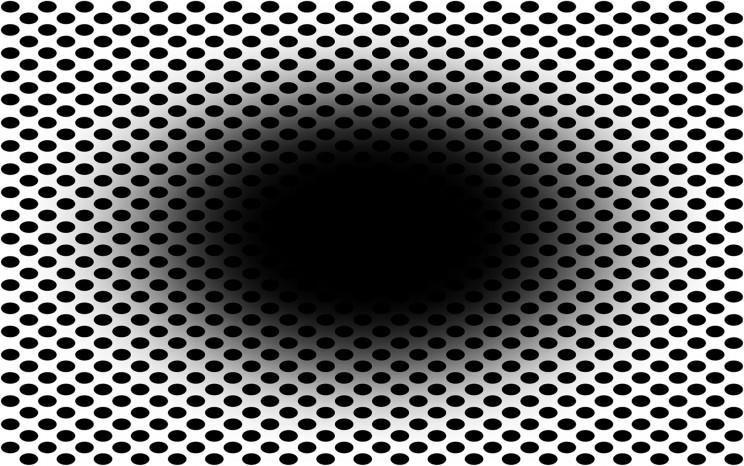Informatics
Technology Innovation Website Editor – 06/02/2022

Fear not: a black hole isn’t really going to swallow you up.
[Imagem: Bruno Laeng et al. – 10.3389/fnhum.2022.877249]
Optical illusion with a physiological effect
Take a look at this photo, and look to change the focal point where you focus your gaze.
Do you notice that the central black hole appears to be expanding, as if you were moving through a dark environment or falling into a hole?
If so, you’re not alone: this illusion of a “widening hole,” which is new to science, is recognized by about 86% of people.
“The ‘widening hole’ is a very dynamic illusion: the circular point, or gradient of the shadow of a central black hole, evokes an amazing impression of optical flow, as if the viewer is heading toward a hole or tunnel,” the researcher said. Professor Bruno Ling from the University of Oslo, Norway.
Optical illusions aren’t just trivial things to pass on to friends: Researchers in the field of psychosocial science study them to better understand the complex processes our visual system uses to anticipate and make sense of the visual world. And our eyes do this in a much more indirect and complex way than, say, a photometer, a device that simply records the amount of light.
In fact, Ling and colleagues show that the illusion of an expanding aperture is so good at tricking our brain that it triggers a pupil-wide reaction to let in more light, just as it would if we were actually moving into a dark area.
In other words, this simple drawing proves that the pupillary reaction does not necessarily depend on reality, but rather on our perception of reality.
There are people who do not see
The researchers also looked at how the color of the hole (in addition to black, they tested blue, cyan, green, magenta, red, yellow, and white) and the points around it affect how strongly we mentally and physiologically interact with the illusion: the illusion is most effective when the black hole is .
About 14% of the volunteers did not see any illusion expansion when the hole was black, while 20% did not perceive the illusion if the hole was colored. Furthermore, among those who perceived the expansion, the subjective strength of the illusion differed markedly.
Researchers still don’t know why this large minority appears to be not prone to expanding the hole illusion.
Article: The pupil adapts to deceptively dilated orifices
Authors: Bruno Lange, Shoaib Nabil, Akiyoshi Kitaoka
Journal: Frontiers in Human Neuroscience
DOI: 10.3389 / fnhum.2022.877249

Other news about:
More topics

“Coffee trailblazer. Social media ninja. Unapologetic web guru. Friendly music fan. Alcohol fanatic.”

